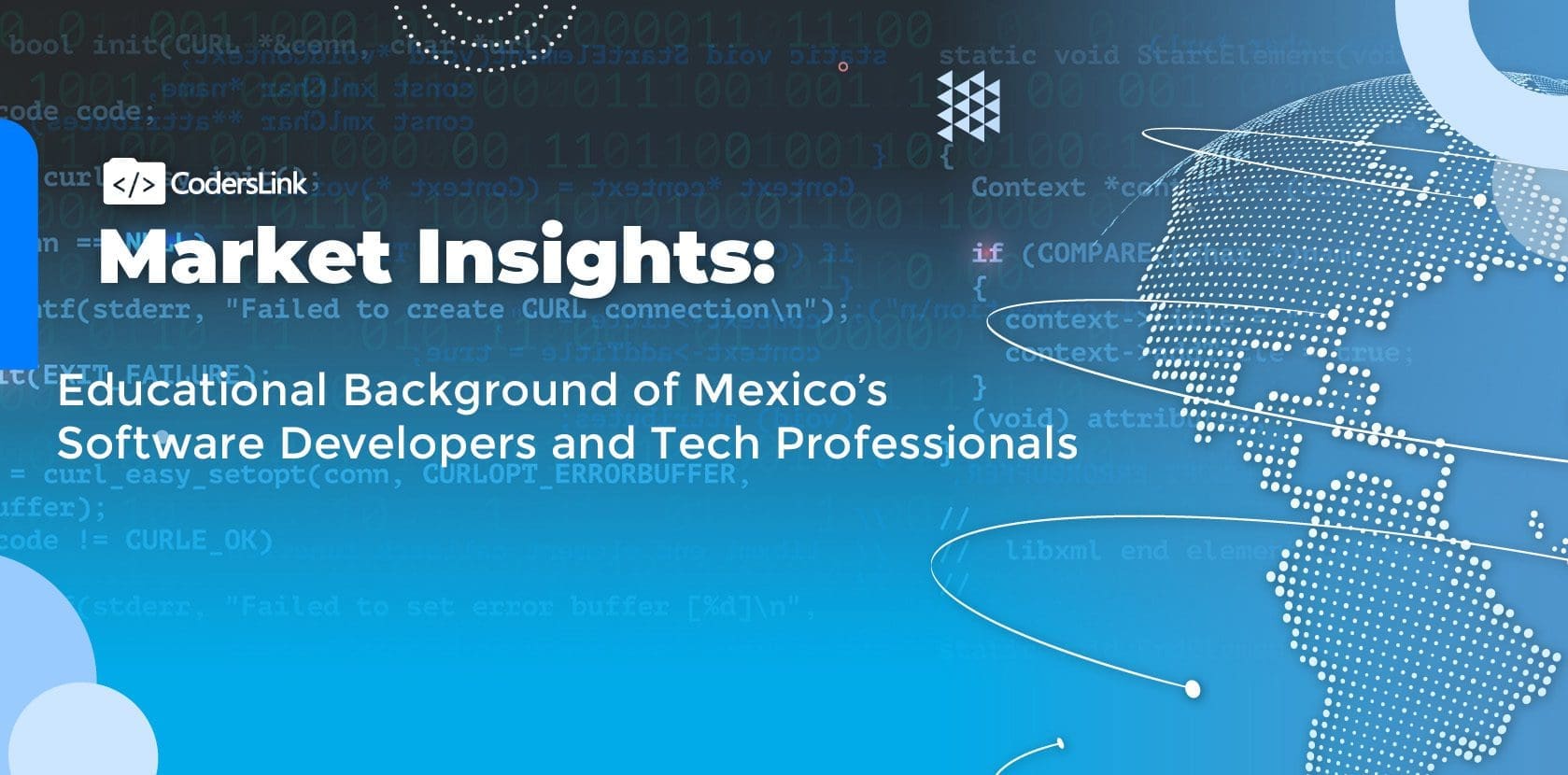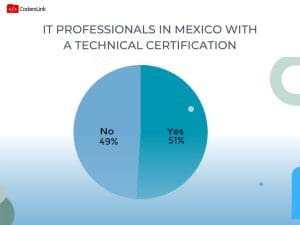
In late 2022, McKinsey wrote about some of the challenges that companies faced when hiring tech talent. Because of so many companies needing to harness the power of technology to move their operations forward, companies are having to assess and reassess their hiring criteria, what they look for, and what they deem important or see as must-haves or nice-to-haves.
And one of the questions that many hiring managers ask themselves is regarding the importance of a formal and technical education vs. hiring people of more non traditional backgrounds. There is a case to be made for both and, in fact, many companies are finding their own preferences in how they hire.
The question about formal education, however, continues to be central in the discussion when hiring tech talent.
As it stands today, about half of today’s working software developers and engineers in the U.S. hold a bachelor’s degree. According to Stack Overflow’s 2022 Developer reports that about 12.41% of professional developers have some college or university hours without a degree, while 47.9% hold a Bachelor’s degree. About 23.95% also hold a Master’s degree.
According to the National Center for Education Statistics, 88,633 computer and information sciences and support services students graduated in the U.S. in 2018-2019.In Mexico, there are about 130, 000 students that graduate each year with engineering degrees. The country has placed a big emphasis on training your people in these fields because of the high demand and several partnerships with U.S. institutions—which grants Mexican students opportunities to train with U.S. companies.
So, what about other talent markets like Mexico?
Education Level of Software Developers and Tech Professionals in Mexico
When it comes to hiring in a different country, one of the factors that companies consider is background. What is this experience? How do they gain that experience? How do I know that the talent has the skills I need?
All of these are valid questions.
Here’s what we know about the education level among Mexico’s tech professionals:
- Not only does Mexico produce a high number of graduates each year in the computer science fields but Mexico has several well-respected and renowned Universities and technical schools.
- The technical education in Mexico is very heavily focused on real-world scenarios and on-the-job training so it is not only an academic pursuit but, rather, taught as an applied science using real job experience to train and improve skills.
- A large percentage of them learn their skills through formal educational institutions and go on to graduate with a degree.
| Education level in Mexico | Percent of Tech Professionals |
| None/Primary School | 0.4% |
| Middle School | 1.5 % |
| High School | 15.3% |
| Bachelor’s Degree (Engineering)_ | 64.5% |
| Post-graduate (Masters) | 12.3% |
| Post -graduate (Doctorate/PhD) | 1.8% |
| Post-Graduate (Specialty) | 4.3% |
At the same time, many of the graduates leaving university with a science degree will further specialize in a particular field to increase their competitiveness as a candidate. Many of Mexico’s tech professionals go on to obtain programming certification from institutions other than universities or technical schools, which can increase earning potential and skill sets.
Popular certifications include:
- Project Management Professionals
- AWS Certified Developer-Associate
- AWS Certified Solutions Architect-Associate
- CompTIA Security +
- Certified Information Systems Security Professional (CISSP)
- Cisco Certified Network Associate (CCNA)
- Certified Scrum Master (CSM)
- Salesforce Administrator Certification
- IAT and IAT Level II Certification
- Computing Technology Industry Association
- (CompTIA) Network + Certification

Hire Software Developers in Mexico
The Mexico Tech Salaries Report showed some of the unique characteristics of the Mexican tech talent pool. The numbers suggest that this population seeks out educational opportunities to improve their technical skills and look for ways to improve their hireability in a very competitive market.
Learn more about what makes Mexico a unique hiring market.


